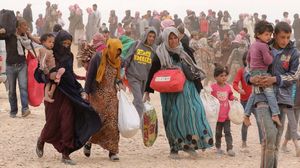The economic challenges facing the Arab world as it approaches 2025 are multifaceted and pronounced, with potential ramifications for employment, social stability, and overall growth. Experts warn of the urgent need for reforms as various nations grapple with unfavorable economic conditions.
According to Dr. Ahmed El-Naggar, a prominent economist, "The Arab world must address its economic disparities to create opportunities for its youth," highlighting the serious issues of unemployment and lack of prospects for young individuals across the region. This sentiment mirrors the fears of many who witness increasing discontent and frustration among the younger populace, often referred to as the 'youth bulge.'
Ms. Fatima Lahlou, an economic advisor, echoes this urgency, stating, "Our economies cannot thrive without substantial reforms and investment." Her observations point to the fact there are numerous structural issues hampering economic growth, including inadequate job creation and weakened public services.
The recent years have seen several Arab nations struggle under the weight of rising inflation, shrinking job markets, and declining foreign investments. Countries such as Egypt, Lebanon, and Jordan exemplify these struggles, each facing unique yet interconnected challenges.
Take Egypt, for example; it boasts one of the largest youth populations globally, yet faces significant unemployment rates, particularly among educated young people. The World Bank has projected significant economic hinderance if these issues are not swiftly addressed.
Lebanon, enduring considerable economic collapse, continues to experience soaring inflation rates alongside increased unemployment. The economic meltdown has precipitated widespread poverty, affecting both urban and rural areas alike, enumerated by the United Nations as poverty levels reach unprecedented heights.
Meanwhile, Jordan has struggled to maintain its economic stability, particularly with unemployment rates climbing during the pandemic. The reliance on foreign aid and remittances has led to increasing economic vulnerabilities.
Geopolitical tensions only exacerbate these issues. The Arab world is not insulated from global economic shifts, and the prolonged regional conflicts significantly hamper investment from outside the region. Businesses are hesitant to engage with nations embroiled with instability.
Regional cooperation has been touted as one route to mitigate these economic challenges. By fostering collaboration, nations can potentially coordinate investments and create joint ventures, which could help diversify economies beyond oil dependency.
Dr. El-Naggar posits, "Without regional collaboration and investment, each nation will continue to struggle with its own unique set of challenges, preventing collective progress." There is also significant talk among policymakers and economists about implementing technology and innovation as key drivers for economic reform.
Strategies for reform include improving education systems to match the demands of modern job markets, increasing investments to create jobs, and enhancing support for small and medium enterprises (SMEs) which often form the backbone of local economies.
During this period of economic uncertainty, citizens are increasingly vocal about their needs. Mass protests, especially among youth, have often signaled unease with governance and accountability, pushing for transparency and reform. Their demand for opportunities and living standards symbolizes more than just frustrations; it embodies the future stability of the entire region.
International bodies such as the World Bank are along for the ride, warning against complacency and urging Arab nations to reform and adapt to meet both local and global economic realities.
With the stakes mounting as 2025 approaches, it is clear the Arab world cannot afford to ignore these challenges. Failure to address economic disparities could lead to widespread discontent, straining regional stability, and potentially igniting broader socio-political unrest.
Moving forward, not only does the region need ambitious reforms, but also a cohesive strategy focusing on the twin pillars of investment and education, fostering youths' hopes and building resilient economies capable of withstanding future shocks.
Addressing these challenges will require collaborative efforts across governments, private sectors, and civil society, ensuring no voice is left behind as the Arab world embarks on this pivotal economic transformation.



